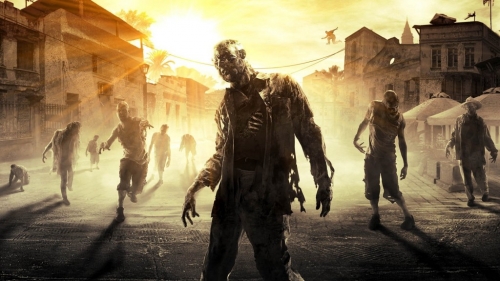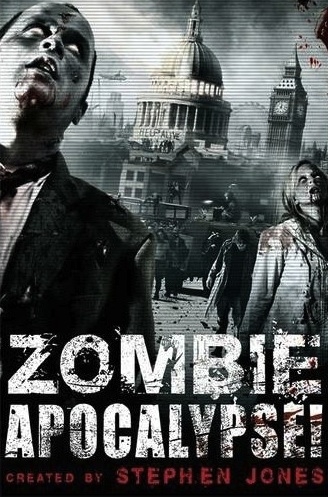Gérard Dussouy ♦
Professeur émérite à l’Université de Bordeaux.
Ex: https://metamag.fr
La géopolitique mondiale n’est plus ce qu’elle était. Sa configuration s’est transformée depuis le dernier quart du vingtième siècle parce que les acteurs internationaux dominants ne sont plus les mêmes. Au point que nous n’hésiterons pas à parler désormais d’une géopolitique post-occidentale, en ce sens que la géopolitique mondiale n’est plus ordonnée, ni même maîtrisée, par l’Occident.
Et le changement, dont le moteur principal a été ces dernières années le facteur économique, va s’accentuer au cours des décennies qui viennent sous la pression de certaines mutations technologiques, mais surtout de phénomènes structurels, tantôt humains (déséquilibres démographiques, migrations et nouveaux hégémonismes), tantôt naturels (réchauffement climatique). Dans le complexe d’espaces que la géopolitique systémique s’efforce d’interpréter, chacun d’entre eux a sa logique de structuration, et comme ils sont, à la fois, interactifs, différents et inséparables, il n’est pas simple de prévoir la tournure générale que ce changement prendra. Cela dépendra de la façon, plus ou moins dramatique, ou plus ou moins bien régulée, dont les hommes et leurs institutions trancheront les nœuds gordiens de la géopolitique qu’ils ont mise en place, délibérément ou pas.
Le premier d’entre eux réside dans les relations compliquées, parce que faites d’interdépendances et de rivalités potentielles, qu’entretiennent les principales puissances mondiales, la Chine et les États-Unis au premier chef. Le second se démutiplie, en quelque sorte, dans les régions ou les zones réputées être les plus instables, les plus conflictuelles, de l’espace géopolitique, où différentes situations pourraient dégénérer. Le troisième consiste dans la capacité qu’auront les hommes à faire face à la multiplication de leur nombre, et aux tensions qui vont avec, en se garantissant une croissance économique durable et suffisante. Le quatrième, qui pourrait s’avèrer le plus déterminant, mais qui reste le plus imprévisible, est celui du niveau d’adaptation des humains au réchauffement climatique et à ses effets perturbants, sachant qu’il apparaît inéluctable, et peut-être plus fort que prévu.
Chacun de ces nœuds gordiens est intéressant en soi parce qu’il met en exergue l’un des différents enjeux épistémologiques de la géopolitique globale, qu’il s’agit de prendre comme un Tout (tous les espaces factoriels sont à considérer), lequel ne relève pas des mêmes valeurs, dîtes universelles, mais qui s’affirme de plus en plus comme étant un plurivers (un lieu de rencontre de visions du monde et de cultures concurrentes).
Néanmoins, il n’est pas question de les analyser ici chacun en profondeur, mais, seulement, d’exposer leur bien-fondé avec des cartes qui peuvent s’avèrer plus explicites que de longs discours. C’est le rôle heuristique des images que d’ouvrir la voie à la réflexion, sans imaginer une seconde qu’elles puissent se suffire à elles-mêmes et se substituer à l’analyse.
I – L’espace géopolitique post-occidental.
La carte géopolitique du monde a, d’ores et déjà, changé de polarité. C’est la conséquence de la montée en puissance de l’Asie, de l’installation de la Chine au cœur du système économique mondial, du déclin de la puissance des Etats-Unis, et de l’inexistence de l’Europe.

Carte n° 1, la Chine au centre du monde.
Source : Le basculement du monde. Manière de voir n° 107. Editions du Monde Diplomatique.
La Chine, désormais première puissance économique mondiale (si l’on prend comme taux de change la parité des pouvoirs d’achat), a pris, du même coup, de façon intentionnelle, mais cela relève aussi de la mécanique de la puissance, l’initiative en matière de politique internationale. En effet, elle développe depuis quelques années une « grande stratégie », dans le cadre du « nouveau multilatéralisme » qui caractérise, selon les dires de ses dirigeants, la situation internationale (Panda, 2011). Cette géostratégie* chinoise s’appuie en particulier sur les autres BRICs (Brésil, Russie et Inde) avec lesquels elle entretient des relations renforcées. Son objectif est de prévenir, ou d’écarter, toute politique d’encerclement des États-Unis et, dans la mesure du possible de les isoler au maximum. Dans cette perspective, elle peut compter sur l’affaiblissement financier de ces derniers, frappés par un endettement sans précédent : 20 000 milliards d’endettement public en 2016, soit 100% du PIB, 60 000 milliards de dollars de dettes privées, et un déficit extérieur plus béant que jamais (750 mimmierds de dollars). Au point que des experts évoquent la possibilité d’un krach de Wall Street dans les années proches. Sachant que la Chine est le premier créancier de l’économie américaine (presque 10% de la dette publique US), elle pourrait tenir bientôt le dollar à sa merci. Mais, ce n’est pas son intérêt immédiat de mettre fin à son rôle de devise internationale, même si cela devait se faire un jour. Son marché intérieur en pleine expansion étant encore trop limité, la Chine a besoin de déverser ses exportations dans celui des États-unis. Certes, afin de garantir l’avenir de ses créances, certains économistes ont évoqué le scénario d’une Chine imposant aux Américains une politique déflationniste à l’instar de celle imposée par Berlin à la Grèce ( Panda, 2011, p. 40).Mais c’est une arme à double tranchant.
La fongibilité de la puissance, à savoir son transfert d’une capacité à une autre, comme de l’économique au militaire, par exemple, n’est jamais évidente et exige du temps. Mais, elle est toujours suffisante pour que l’on s’interdise de séparer, comme on l’a fait trop longtemps, et comme certains continuent à le faire, ce qui est la géopolitique stricto sensu, celle des territoires, et la géoéconomie ; mais également la géodémographie, la géoculture ou, pourquoi pas selon la terminologie de Deleuze et Guattari, la géophilosophie. La montée en puissance de l’économie chinoise ne peut donc qu’encourager Pékin à prendre des initiatives diplomatiques, parallèlement à la modernisation de ses forces armées ; en attendant de pouvoir, un jour, maintenant que la Chine a renoué avec ses traditions, exercer son influence culturelle et idéelle.

Carte n°2 : Les partenaires de l’OCS.
Source : Population Data.net
Le déploiement diplomatique de la Chine en Asie a pour principal instrument l’Organisation de Coopération de Shanghai (OCS), fondée en 2001. Conçue à l’origine pour combattre ce que les Chinois appellent les « trois maux » du terrorisme, du séparatisme et de l’extrémisme, l’organisation a facilité le rapprochement russo-chinois, face à la présence américaine en Afghanistan et face à la pression de Washington sur l’Iran, mais elle est aussi au départ d’un certain nombre de coopérations économiques (c’est dans l’ordre géopolitique des choses), en matière de ventes et de transports d’hydrocarbures en particulier. Tout cela fait que l’OCS s’apparente de plus en plus à un G8 exclusif (par rapport aux États-Unis), mais qui se tourne aussi vers le Golfe Persique et vers l’Europe.

Carte n°3 : les nouvelles routes de la soie.
Source : Map Attribute : China’s « One Belt, One Road », 2016.
C’est en partie dans le cadre de l’OCS (pour des besoins de co-financement), bien qu’il s’agisse d’une intitiative éminement chinoise bien accueillie par l’Union européenne, que s’est opérée la renaissance « des routes de la soie ». Avec parmi elles, celle qui mérite le plus le nom, parce qu’elle traverse l’Asie centrale, et qui, depuis cette année, relie notamment Wuhan à Lyon (11 300 km parcourus en quinze jours). Dans l’ensemble, il s’agit de mettre en place un réseau ferroviaire entre 16 villes chinoises et 15 villes européennes sur lequel Pékin compte voir circuler 5000 trains par an d’ici à 2020. L’objectif est de faire transférer par la voie terrestre une part de plus en plus élevée du commerce qui grandit entre la Chine et l’Europe. Actuellement, ce renouveau fait surtout l’affaire de la Chine puisque les flux Est-Ouest sont le double que dans l’autre sens. Il s’inscrit dans le projet chinois de devenir le pays manufacturier leader d’ici à 2049, et dont il faudra exporter la production. Imitant en cela le plan allemand d’Industrie 4.0, dont l’objectif est la production standardisée d’outils de production, le plan « Made in China 2025 » entend redoubler les dépenses en R&D afin de faire de la Chine une grande puissance technologique à l’horizon du centenaire de la révolution maoïste.

Carte n° 4 Les points de tension entre les deux géants asiatiques
Source : Caution India, Janvier 2011.
Evidemment, la nouvelle configuration géopolitique, celle qui correspond au leadership asiatique, n’est pas dépourvue de rivalités au cœur même de l’espace devenu référentiel. La Chine et l’Inde, pour ne parler que d’elles, sont deux États-continent d’une masse critique comme il n’en a jamais existé dans l’histoire. Culturellement, tout les oppose, et à la compétition politique et commerciale qui, immanquablement, va s’instaurer entre elles, s’ajoute un certain nombre de contentieux territoriaux. De la façon dont évolueront leurs relations bilatérales, plutôt apaisées à l’heure actuelle, et sachant qu’on peut prévoir qu’elles s’inscriront dans un jeu triangulaire avec les Etat-Unis, dépendra l’équilibre asiatique qui commandera à celui du monde.
II – Les régions les plus problématiques de la géopolitique post-occidentale.
La géopolitique post-occidentale ne sera pas exempte de luttes hégémoniques. Pas moins que ne le furent les périodes précédentes. Dans l’avenir le plus proche, c’est entre la puissance chinoise en pleine ascension, et de plus en plus sûre d’elle-même, et la puissance américaine, encore forte de son potentiel militaire et technologique, que des tensions sont à prévoir. Surtout si les États-Unis ont le sentiment de revivre le « cauchemar de Mackinder » (du nom du géographe anglais qui, au début du 20ème siècle, redoutait l’unification du continent européen par l’Allemagne ou par la Russie, avec pour conséquence l’exclusion du Royaume-Uni) (Dussouy, 2006). C’est-à-dire l’impression de se retrouver eux-mêmes « exclus » d’Eurasie par la Chine, à la suite des alliances qu’elle aura concoctées avec les autres puissances de l’Ile Mondiale. Une issue que le déploiement diplomatique chinois, par l’intermédiaire des BRI ou de l’OCS, et commercial, via les routes de la soie, pourrait accréditer.

Carte n° 5 : La politique de containment de la Chine par les États-Unis.
Source : Limes, Rome 9/9/2014.
A plusieurs reprises, réagissant aux initiatives américaines qu’un tel schéma (hypothétique) peut inspirer, les dirigeants chinois ont dénoncé la stratégie d’encerclement conduite par Washington. Affaire de perspective, de vision, certes, mais qui peut avoir des conséquences graves car le dispositif de surveillance militaire mis en place par les États-Unis dans le Pacifique ouest recoupe les nombreux axes de rivalité qui fractionnent la bordure océanique de l’Asie de l’Est.

Carte n°6 : Les rivalités territoriales
Enfin, depuis l’été 2017, l’Asie de l’Est se trouve un peu plus à l’avant-scène de la géopolitique mondiale à cause de son « trublion nucléaire », la Corée du Nord. En quête de reconnaissance internationale, le régime de Pyongyang a montré qu’il disposait d’une panoplie de vrais missiles intercontinentaux (ICBM) susceptibles d’emporter des bombes nucléaires. La réalité de la menace qu’entend faire planer le dirigeant Kim Jong-un sur ses voisins et sur les États-Unis, principale cible diplomatique, est difficile à appréhender. On peut imaginer que, sauf accident ou réaction inconséquente de l’une des parties concernées, comme lors de la « crise des missiles » de Cuba, en 1962, on va s’acheminer vers un marchandage régional dans lequel, en contrepartie de son arbitrage, Pékin obtiendra des compensations dans les litiges (politiques ou commerciaux) que la capitale chinoise peut entretenir avec Washington.

Carte n°7 : Portée estimée des missiles nord-coréens
Sur l’autre face de l’Asie, et au-delà jusqu’au Nord de l’Afrique, s’étire le monde musulman que les géostratèges américains ont pris l’habitude de diviser en trois espaces stratégiques, et qui est, sans aucun doute, aujourd’hui, la région la plus tourmentée de la planète. Elle recelle de nombreux enjeux bien connus, qui attisent toujours la convoitise des grandes puissances économiques, mais aussi de nombreux dangers dont le plus évident, de nos jours et pour de nombreuses années à venir, est d’abriter les bases du terrorisme islamiste. Même si l’Etat du même nom est moribond. Car dans le vaste espace musulman sourde un hégémonisme, qui ne dit pas son nom, insuflé par la conjonction du dynamisme démographique, de la richesse financière, et d’une foi religieuse exclusive.

Carte n°8 Les trois espaces stratégiques du monde musulman
A l’Est, la zone formée par l’Asie Centrale et le Caucase est celle où sévit la guerre d’Afghanistan dans laquelle s’empêtrent encore les Américains, sous le regard attentif des Russes et des Chinois, mais aussi de la puissance montante de l’Iran, qui tous ont des intérêts économiques politiques, stratégiques, à faire valoir. Au centre, le Moyen-orient proprement dit est la région perturbée que l’on sait pour des raisons qui n’ont pas changé depuis des décennies, mais auxquelles se sont surajoutées la destruction d’abord, la déstabilisation ensuite, de l’Irak, la guerre civile syrienne, et l’activité meurtrière du terrorisme des fondamentalistes. A l’Ouest, en Afrique du Nord, depuis le fiasco des printemps arabes, la Libye constitue la principale préoccupation des chancelleries et des stratèges occidentaux.

Carte n°9 : Les régions les plus tourmentées de la planète.
Source : Le Monde Diplomatique.
Quant à l’Europe, cantonnée maintenant à la marge de la scène mondiale (ce qui risque fort de rester définitivement sa place en raison de son incapacité à s’unir), elle n’est pas exempte de tout risque de conflit. En effet, la situation demeure tendue entre l’Ukraine et la Russie, et aucune solution politique n’a encore été trouvée pour surmonter de façon satisfaisante, pour toutes les parties, le problème de la dissidence du Donbass. De surcroît, la « crise ukrainienne » éloigne l’Europe et la Russie l’une de l’autre, alors que tout tend à démontrer que, dans la nouvelle configuration géopolitique du monde, elles sont deux « alliés naturels » (Dussouy, 2013).

Carte n°10 : Le différend entre l’Ukraine et la Russie.
Mais, marginalisation ne rythme pas avec sécurisation ou avec mise à l’abri. L’Europe n’est qu’une pièce du système mondial qu’elle a contribué à mettre en place. Elle est directement concernée, au même titre que les autres continents, par les grands flux planétaires de toutes natures.
III – Quelles conséquences géopolitiques de la surpopulation africaine (… et indienne) ?
En effet, l’Europe est désormais le premier continent d’accueil des migrants internationaux (34%), suivie par l’Asie (28%), l’Amérique du Nord(23%) l’Afrique (9%) et enfin l’Amérique Latine-Caraïbes (4%L L’Allemagne, à elle seule concentre 5% des migrants internationaux (468 800 entrées en 2014 contre 259 800 en France). Seuls les Etats-Unis (20%) en accueillent plus. Les principaux pays d’émigration sont l’Inde (16 millions), le Mexique (12 millions), la Russie (11 millions) et la Chine (10 millions), en 2015 (Bloom, 2016).

Carte n° 11 : Les migrations internationales.
L’une des plus importantes migrations intercontinentales de l’histoire récente s’est produite en 2015, avec l’exode de plus d’un million de Syriens vers l’Europe. Depuis, bien que d’une amplitude un peu moindre, le phénomène des migrations depuis l’Afrique et le Moyen-Orient à travers la Méditerranée crée des zones de tension aux points de passage entre les deux rives de cette mer, surtout en Italie, en Gréce et dans les Balkans, et maintenant en Espagne.

Carte n° 12 Les zones de tension en Méditerranée.
Source : RT 1/08/2015
Or, ces vagues migratoires qui affectent l’Europe sont probablement les signes avant-coureurs de grands mouvements de population, tant la conjoncture de la démographie mondiale paraît devoir se compliquer. La Terre portera près de 10 milliards d’habitants en 2050, contre 7,5 milliards en 2017, et entre 11 et 12 milliards en 2100. L’effet d’inertie de la croissance passée (c’est-à-dire l’existence d’une forte proportion de jeunes adultes dans la population mondiale) et le maintien de la fécondité à un niveau élevé en Afrique sub-saharienne expliquent cela. Questions : la croissance économique sera-t-elle à la hauteur ? Pourra-t-elle garantir un niveau de vie décent à tous les hommes, quand on sait que des économistes, dont le Français Daniel Cohen, envisagent l’entrée probable de l’économie mondiale dans une phase stationnaire de longue durée (Cohen, 2016) ? Le maintien des niveaux de vie des pays avancés est-il compatible avec une concurrence internationale des travailleurs de plus en plus éxacerbée ? Pessimiste, l’ethnologue Levy-Strauss considérait que 3 milliards d’individus était la charge maximale que pouvait supporter Gaïa pour que les hommes s’y trouvent bien !

Carte n° 13 : La population mondiale en 2050.
La croissance très inégale de la population du monde, selon les régions et les continents, depuis le milieu du 20ème siècle, engendre des déséquilibres qui se précisent, et qui s’expriment, à la fois, en nombre et par âge. Et c’est au niveau de l’Afrique, et dans une moindre mesure de l’Inde que le nœud gordien d’une démographie incontrôlée ou mal régulée apparaît le plus complexe à défaire. Nul doute que la croissance de la population africaine est un défi pour l’Afrique elle-même, mais aussi pour la planète et particulièrement pour l’Europe, car on voit mal comment le développement économique et alimentaire du continent africain pourra suivre la croissance des besoins. Quant à l’Inde, qui a le mérite de faire partie des économies émergentes, son surplus de population risque cependant d’être un frein, mais, surtout, d’être mal perçu en Asie.

Carte n°14 , par anamorphose : La population de l’Eurasie et de l’Afrique en 2100.
La carte par anamorphose est une « carte quantitative » qui met en relief un facteur donné. Les superficies représentées sont proportionnelles, ici, à la population des différents Etats. L’anamorphose déforme le réel mais permet la mise en perspective d’un de ses éléments cruciaux.
Sans tomber dans les fantasmes (que la carte par anamorphose peut susciter), Il est tout à fait réaliste de penser que les déséquilibres répertoriés provoqueront des mouvements migratoires de très grande ampleur. Du niveau, peut-être, des migrations européennes du 19ème siècle, qui ont radicalement changé le peuplement de l’Amérique du Nord. Et puis, sans en être la cause directe, les disparités démographiques ont souvent favorisé les guerres dans le passé. Il faudra de nombreux miracles économiques pour écarter les risques de guerre.
IV – L’impact géopolitique imprévisible du réchauffement climatique.
Le réchauffement climatique, qui s’est ralenti entre 1996 et 2014 pour repartir à la hausse depuis, semble inéluctable. On ne refera pas ici le débat légitime des experts, et l’on partira de l’hypoyhèse de ceux qui lui accordent une cause anthropique. Compte tenu, alors, de la faiblesse des mesures adpotées, à ce jour, pour en ralentir le rythme, la question principale qui se pose aux hommes et aux sociétés est, ni plus ni moins, que celle de l’adaptation aux circonstances. En effet, la force du phénomène (Cf. les degrès de température moyenne en plus, selon les latitudes) dictera sa loi, et il s’agira de s’en accomoder, parfois en recherchant des stratégies de survie.

Carte n° 15 : Le réchauffement climatique.
Au plan géopolitique les conséquences seront multiples. L’agriculture des latitudes élevées profitera de la montée des températures. Mais, partout ailleurs, celle-ci va faire baisser les rendements moyens mondiaux de cultures comme le riz (moins 3,2% pour un degré Celsius de hausse), le blé (moins 6%), le maïs (moins 7,4%). Il va de soi que les tensions ou les pénuries alimentaires qui naîtront de la baisse des rendements pourront déstabiliser de nombreux états.
L’irrégularité de la pluviométrie et la raréfaction de la ressource en eau, ici, mais les inondations catastrophiques et les décalages saisonniers des cultures, ailleurs, sont aussi des causes possibles de dérives politiques, tandis qu’un peu partout de nouveaux risques sanitaires vont surgir. Les situations les plus critiques seront celles créées par la conjugaison de la pression démographique et de la nouvelle contrainte climatique. Ce sont elles qui pourraient déclencher de grands mouvements belligènes de population, tels que l’histoire en a le secret.
Enfin, un changement géopolitique des plus prévisibles est l’ouverture de plus en plus grande de l’océan Arctique au commerce maritime international, mais aussi aux flottes militaires, et la meilleure accessibilité des ressources des zones polaires.

Carte n° 16 : Les enjeux de l’océan Arctique.
Source : La Croix 18/08/2015.
Conclusion
L’idée de ce bref article est de montrer, par la preuve des cartes, l’existence de dynamiques planétaires qui font que l’histoire n’est pas finie. Ces dernières incitent à avancer l’hypothèse d’une géopolitique post-occidentale, dont les problématiques sont de vrais nœuds gordiens pour le devenir des jeunes générations. Il serait temps qu’en Europe, on en prenne conscience.
Notes :
BLOOM, D.E., « Bouleversement démographique. Le monde va devoir affronter la croissance démographique, le vieillissement, les migrations et l’urbanisation », Finance et développement, Mars 2016.
COHEN, D., Le monde est clos et le désir infini, Paris, Albin Michel, 2015

DUSSOUY, G. Quelle géopolitique au 21ème siècle ? Bruxelles, Complexe, 2001.
DUSSOUY, G. Les théories géopolitiques, Paris, L’Harmattan, 2006.
DUSSOUY, G. Fonder un Etat européen, Blois, Tatamis, 2013.
PANDA, J. P, China’s « New Multilateralism » and the Rise of BRIC. A Realist Interpretation of a “Multipolar” World Order, Institute for Security and Development Policy, Stockholm, 2011.
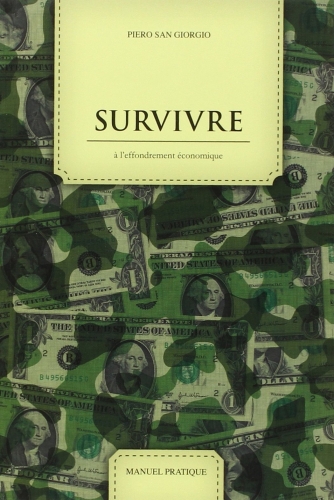 Tout est fait pour le divertissement immédiat : amusement constant, pornographie, drogues. La culture de la consommation nous focalise sur l'avoir au lieu de l'être, sur la possession au lieu des relations, sur les apparences au lieu du bien-être. Cela pousse à l'égoïsme, à l'égocentrisme, à la concurrence constante. Dans tous les domaines, on se compare toujours au niveau le plus haut, idéalisé, impossible à atteindre. La confusion et la frustration engendrées sont considérables. Résultat : des problèmes comme les maladies mentales, le taux de divorce, l'addiction aux drogues et à d'autres substances, et même les taux de criminalité n'ont fait qu'augmenter partout en Occident depuis les années 1950.
Tout est fait pour le divertissement immédiat : amusement constant, pornographie, drogues. La culture de la consommation nous focalise sur l'avoir au lieu de l'être, sur la possession au lieu des relations, sur les apparences au lieu du bien-être. Cela pousse à l'égoïsme, à l'égocentrisme, à la concurrence constante. Dans tous les domaines, on se compare toujours au niveau le plus haut, idéalisé, impossible à atteindre. La confusion et la frustration engendrées sont considérables. Résultat : des problèmes comme les maladies mentales, le taux de divorce, l'addiction aux drogues et à d'autres substances, et même les taux de criminalité n'ont fait qu'augmenter partout en Occident depuis les années 1950.




 del.icio.us
del.icio.us
 Digg
Digg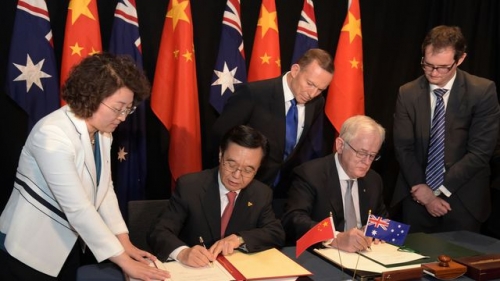

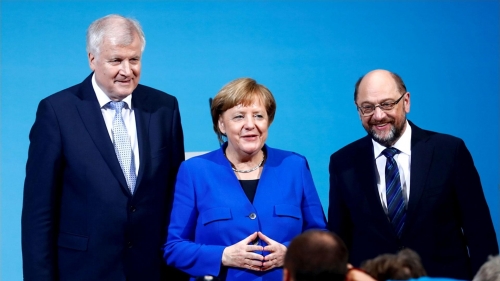
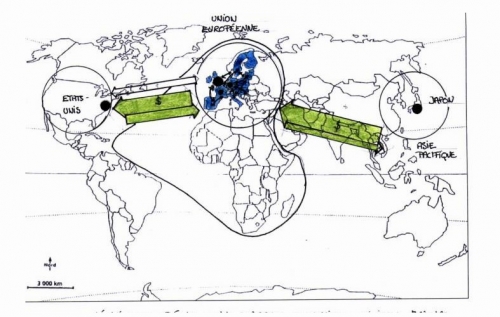
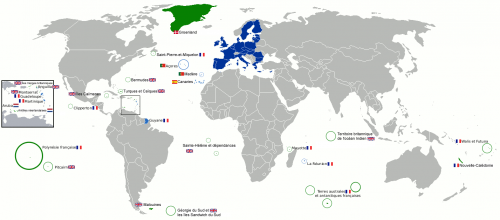
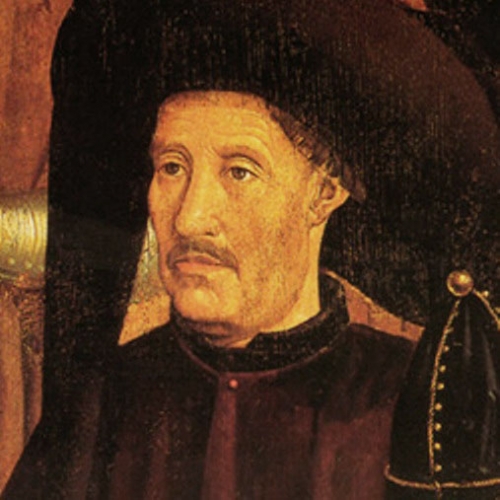
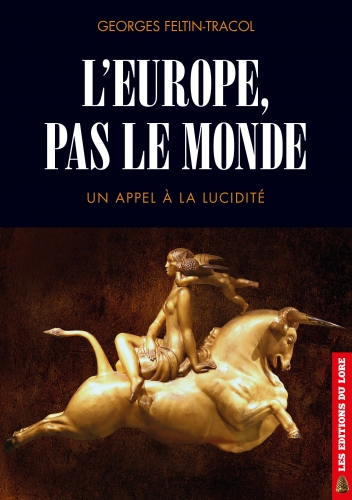
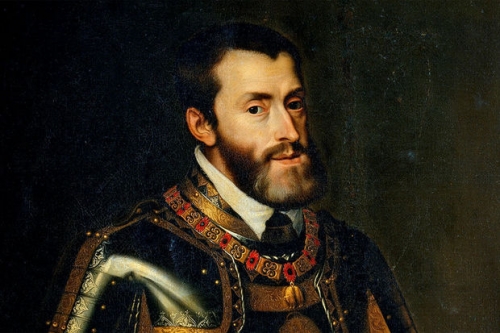
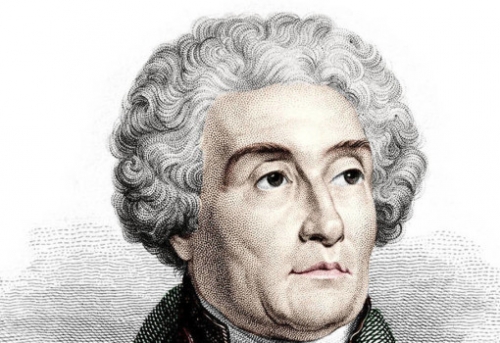
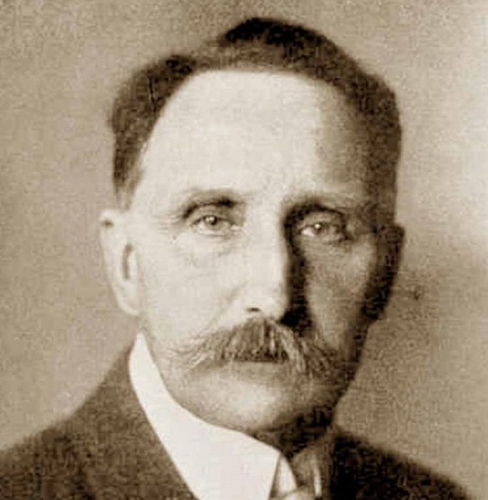



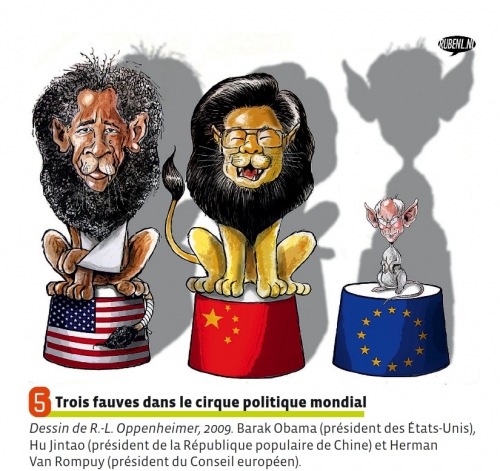
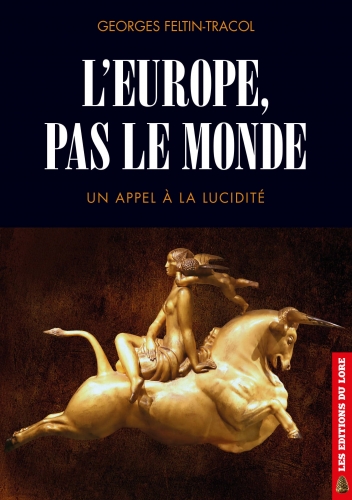
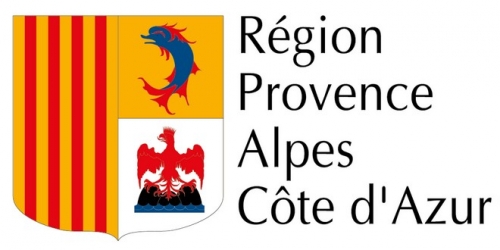
 Nous publions régulièrement dans nos colonnes des
Nous publions régulièrement dans nos colonnes des  Les mondialistes n’avoueraient pour rien au monde qu’ils nous préparent un avenir transhumaniste, c’est-à-dire la robotisation intégrale de la condition humaine, de l’Homme, pour être clair. La procédure exige qu’avant d’arriver à cette étape ultime, il convient de gommer soigneusement tous les éléments de la vie courante qui feraient référence à ces coutumes honnies et largement dépassées qui font référence à l’Histoire, aux traditions, au bon sens, aux vertus, au sentiment patriotique, ou, pire encore, à l’attachement à un sol, ce qui dénoterait un esprit obtus, poussiéreux et rédhibitoirement indécrottable, qui plus est farouchement hostile aux lendemains radieusement métalliques que l’Ordre mondial condescend à nous préparer.
Les mondialistes n’avoueraient pour rien au monde qu’ils nous préparent un avenir transhumaniste, c’est-à-dire la robotisation intégrale de la condition humaine, de l’Homme, pour être clair. La procédure exige qu’avant d’arriver à cette étape ultime, il convient de gommer soigneusement tous les éléments de la vie courante qui feraient référence à ces coutumes honnies et largement dépassées qui font référence à l’Histoire, aux traditions, au bon sens, aux vertus, au sentiment patriotique, ou, pire encore, à l’attachement à un sol, ce qui dénoterait un esprit obtus, poussiéreux et rédhibitoirement indécrottable, qui plus est farouchement hostile aux lendemains radieusement métalliques que l’Ordre mondial condescend à nous préparer. Muselier aurait pu aussi appeler la PACA « Bas de France » pour faire pendant aux « Hauts de France », ou, pour faire plus simple et en concertation avec les autres régions françaises, donner des numéros : zone 1 (pour Paris, évidemment) puis zone 2, 3, etc. Muselier, tel un capitaine de navire tenant fermement la barre, nous explique que « le Sud, c’est le soleil, la mer, la montagne et le bien-vivre » (tiens, ça me rappelle une autre chanson : il y a le ciel, le soleil et la mer…). Le navire en question, c’est certainement l’une de ces usines à touristes flottantes qui accostent à Marseille et dont les passagers en descendent pour visiter… Aix-en-Provence.
Muselier aurait pu aussi appeler la PACA « Bas de France » pour faire pendant aux « Hauts de France », ou, pour faire plus simple et en concertation avec les autres régions françaises, donner des numéros : zone 1 (pour Paris, évidemment) puis zone 2, 3, etc. Muselier, tel un capitaine de navire tenant fermement la barre, nous explique que « le Sud, c’est le soleil, la mer, la montagne et le bien-vivre » (tiens, ça me rappelle une autre chanson : il y a le ciel, le soleil et la mer…). Le navire en question, c’est certainement l’une de ces usines à touristes flottantes qui accostent à Marseille et dont les passagers en descendent pour visiter… Aix-en-Provence.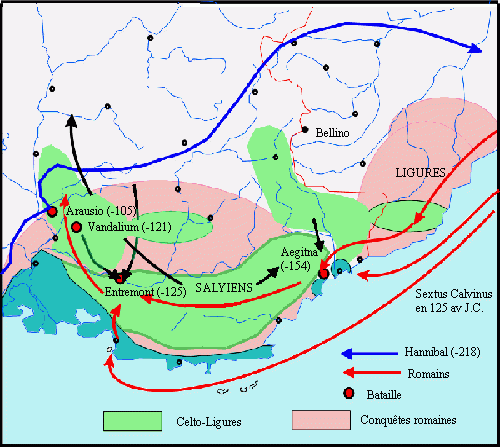
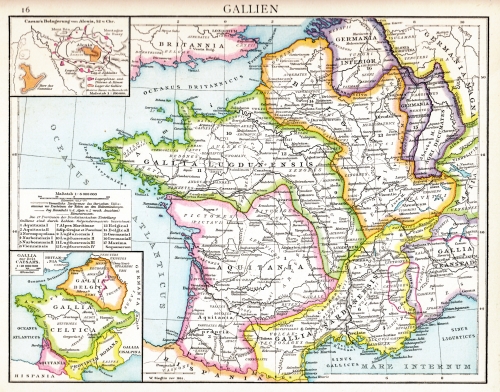
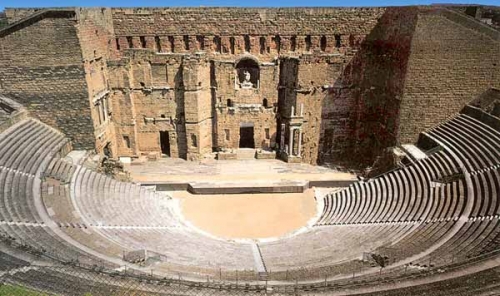
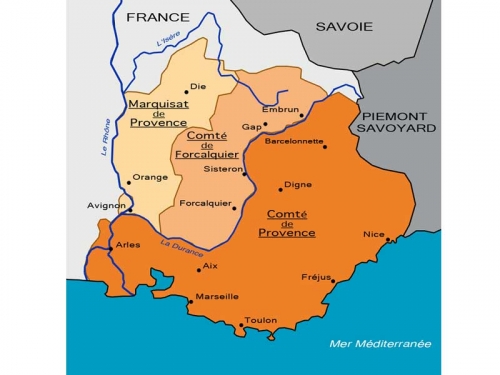
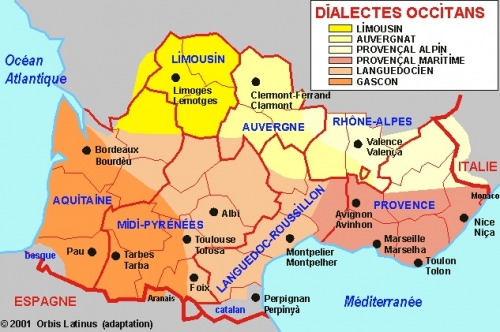
 Les identités les plus affirmées encore actuellement dans notre région constituent ces nombreux « pays » qui se sont regroupés au sein d’une entité plus importante formée par la grande Provence (qui inclut les « Bas-Alpins » comme les appelait Giono, mais qu’on dénommera plus volontiers les Alpes provençales) et par les Niçois, le Pays de Nice étant un pays ligure à l’origine. Aussi, j’aurais proposé initialement de choisir entre ces deux appellations : Grande Provence et Provence-Ligurie mais nous devons tenir compte du fait que l’ancien comté de Nice, même s’il est constitué essentiellement par la seconde ville de la région en termes d’habitants, ne représente qu’un tout petit territoire sur le plan géographique et que cette particularité pourrait entraîner légitimement la revendication d’autres « pays » tout aussi modestes en superficie qui aimeraient voir aussi leur nom accolé au principal pour diverses raisons, touristiques ou historiques (la Camargue, ou le Comtat venaissin, par exemple), principal qui ne peut être que Provence et nous retomberions dans l’inévitable acronyme pour faire vite, à l’image de notre temps, ce dont nous voulons justement nous débarrasser. D’autre part, cela créerait une confusion avec la province italienne voisine éponyme et engendrerait des problèmes d’ordre concret, notamment administratifs, voire diplomatiques. Je m’en tiens donc à « Grande Provence » pour éviter toute discrimination ou ambiguité.
Les identités les plus affirmées encore actuellement dans notre région constituent ces nombreux « pays » qui se sont regroupés au sein d’une entité plus importante formée par la grande Provence (qui inclut les « Bas-Alpins » comme les appelait Giono, mais qu’on dénommera plus volontiers les Alpes provençales) et par les Niçois, le Pays de Nice étant un pays ligure à l’origine. Aussi, j’aurais proposé initialement de choisir entre ces deux appellations : Grande Provence et Provence-Ligurie mais nous devons tenir compte du fait que l’ancien comté de Nice, même s’il est constitué essentiellement par la seconde ville de la région en termes d’habitants, ne représente qu’un tout petit territoire sur le plan géographique et que cette particularité pourrait entraîner légitimement la revendication d’autres « pays » tout aussi modestes en superficie qui aimeraient voir aussi leur nom accolé au principal pour diverses raisons, touristiques ou historiques (la Camargue, ou le Comtat venaissin, par exemple), principal qui ne peut être que Provence et nous retomberions dans l’inévitable acronyme pour faire vite, à l’image de notre temps, ce dont nous voulons justement nous débarrasser. D’autre part, cela créerait une confusion avec la province italienne voisine éponyme et engendrerait des problèmes d’ordre concret, notamment administratifs, voire diplomatiques. Je m’en tiens donc à « Grande Provence » pour éviter toute discrimination ou ambiguité.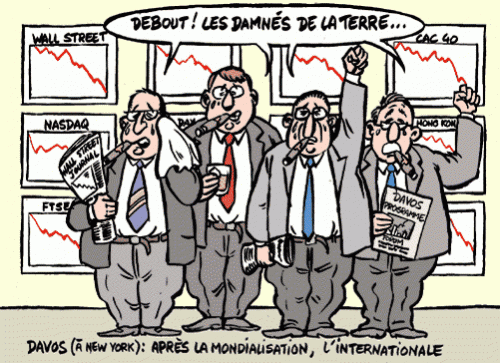
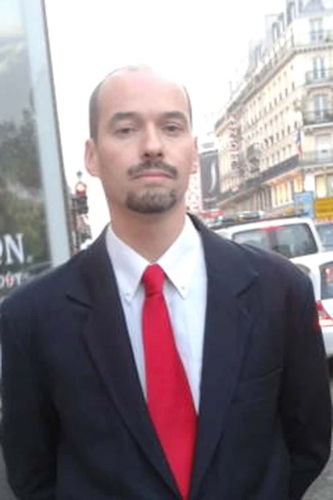 Après avoir écrit Le totalitarisme économique il y a quelques années (Éditions L’Æncre), vous récidivez cette fois avec Le Syllogisme économique… Pourquoi ?
Après avoir écrit Le totalitarisme économique il y a quelques années (Éditions L’Æncre), vous récidivez cette fois avec Le Syllogisme économique… Pourquoi ?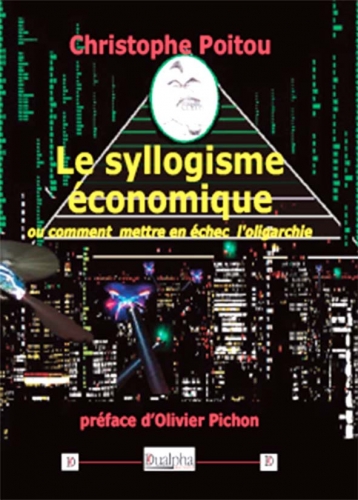 Que signifie votre titre Le Syllogisme économique ? Il peut apparaître un peu abscons…
Que signifie votre titre Le Syllogisme économique ? Il peut apparaître un peu abscons…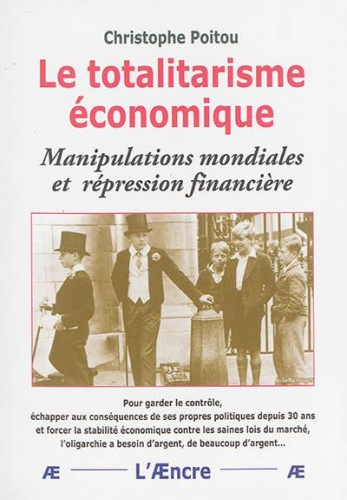 BON DE COMMANDE
BON DE COMMANDE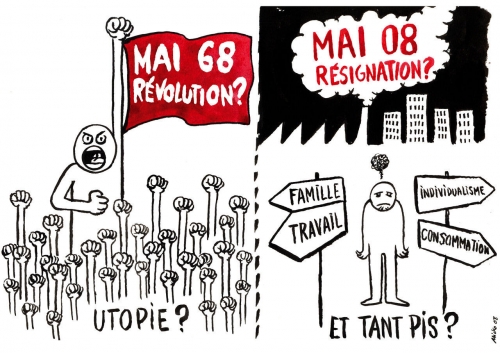
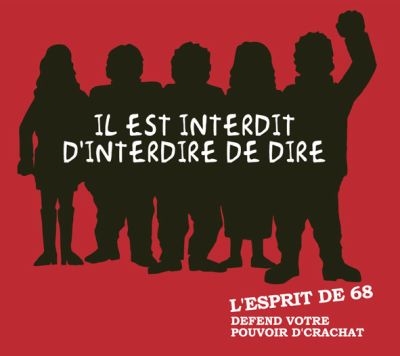


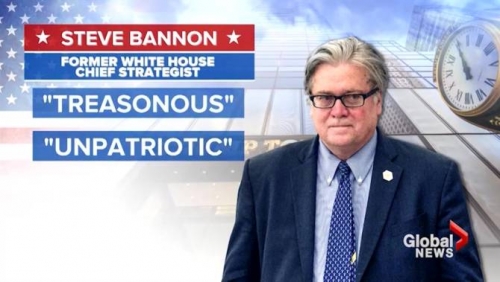
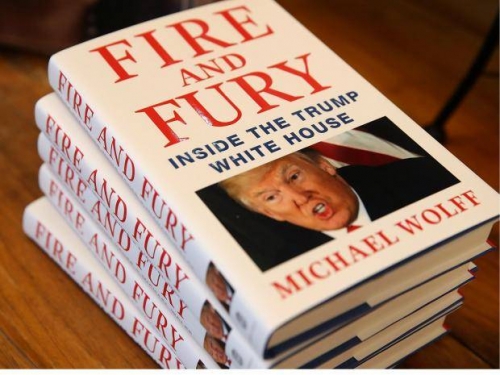
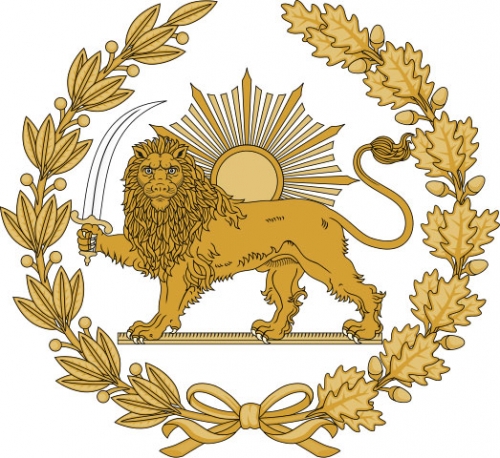
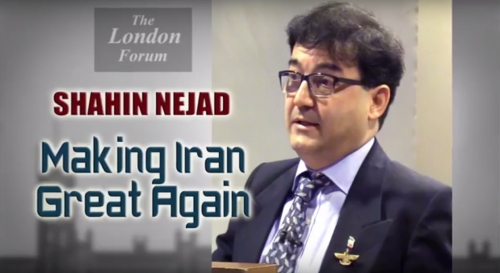
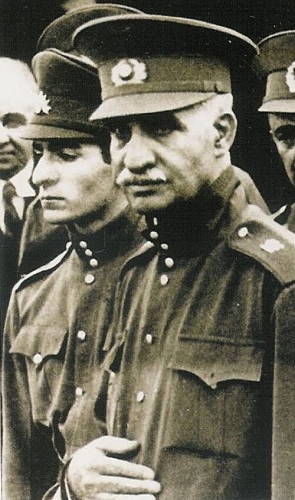


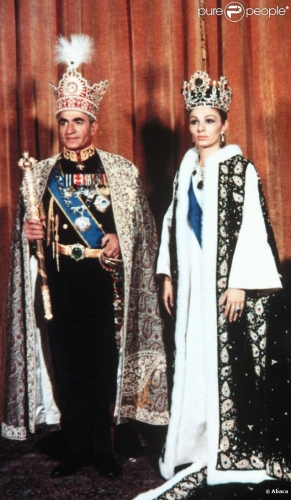 What is particularly alarming about Reza Pahlavi’s discourse of human rights and secularism, especially considering that he is funded by Saudi Arabia, is that he wants Sunnis in outlying provinces such as Kurdistan and Baluchistan to be able to build mosques and religious schools that reflect their beliefs. At a time when the majority of Shiite Iranians are burning down mosques and seminaries, do we really want Wahhabi-funded madrassas in Iran? Reza Pahlavi is utterly ignorant of his nation’s history when he claims, in this interview as in many others that he has given, that the Shiite-Sunni conflict does not precede the Islamic Republic’s allegedly divisive state ideology and foreign policy. When the Ismaili Assassins and Shah Ismail Safavi took up the banner of Shiism, it was to exploit this sectarian division in order protect Iran from being swallowed by the Arabian and Turkic Caliphates. Otherwise, Iran today might look a lot more like Persian-speaking Afghanistan. Iranian society has evolved beyond the need for cloaking Iranian ideas and values in a Shiite garb. Nevertheless, it is dishonest to deny the historic relationship between Shiism and the struggle to maintain Iranian identity in the face of the Sunni Muslim orthodoxy of the various Caliphates, including the present Islamic State to Iran’s immediate West and Al-Qaeda or the Taliban on Iran’s eastern border.
What is particularly alarming about Reza Pahlavi’s discourse of human rights and secularism, especially considering that he is funded by Saudi Arabia, is that he wants Sunnis in outlying provinces such as Kurdistan and Baluchistan to be able to build mosques and religious schools that reflect their beliefs. At a time when the majority of Shiite Iranians are burning down mosques and seminaries, do we really want Wahhabi-funded madrassas in Iran? Reza Pahlavi is utterly ignorant of his nation’s history when he claims, in this interview as in many others that he has given, that the Shiite-Sunni conflict does not precede the Islamic Republic’s allegedly divisive state ideology and foreign policy. When the Ismaili Assassins and Shah Ismail Safavi took up the banner of Shiism, it was to exploit this sectarian division in order protect Iran from being swallowed by the Arabian and Turkic Caliphates. Otherwise, Iran today might look a lot more like Persian-speaking Afghanistan. Iranian society has evolved beyond the need for cloaking Iranian ideas and values in a Shiite garb. Nevertheless, it is dishonest to deny the historic relationship between Shiism and the struggle to maintain Iranian identity in the face of the Sunni Muslim orthodoxy of the various Caliphates, including the present Islamic State to Iran’s immediate West and Al-Qaeda or the Taliban on Iran’s eastern border.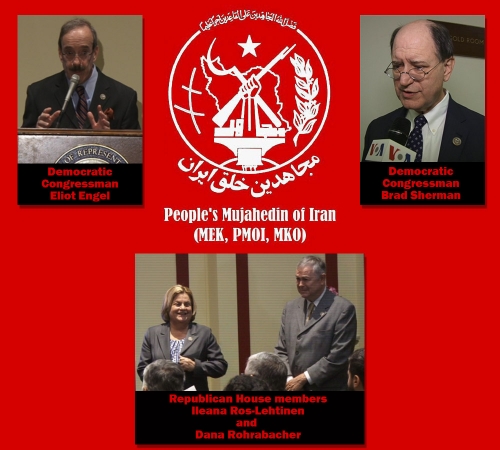
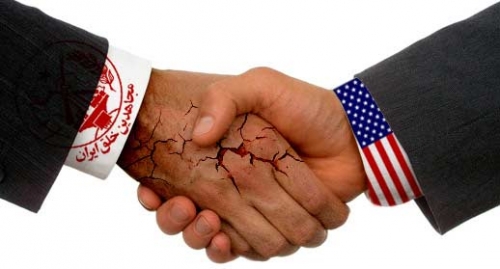

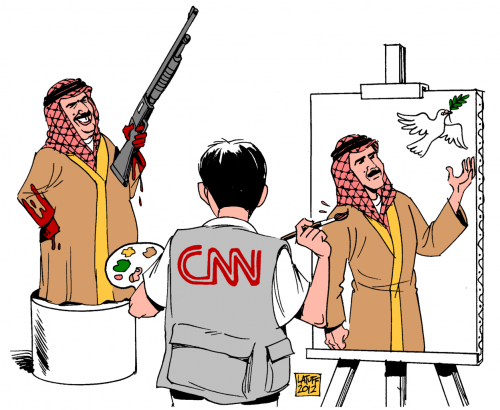

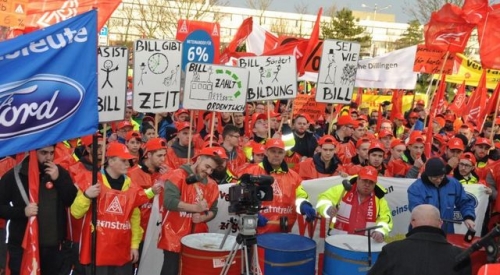


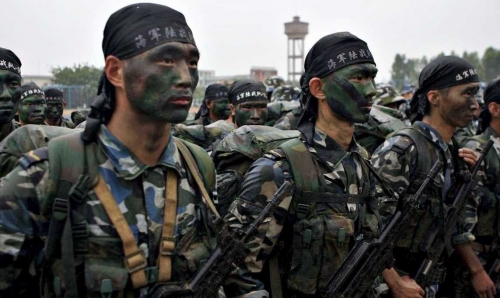
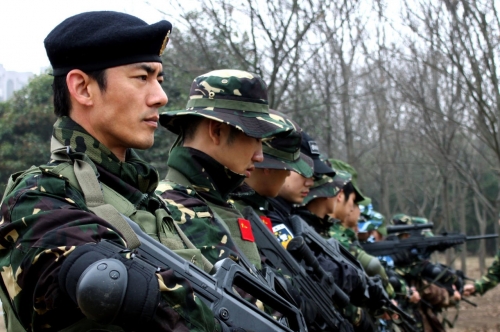
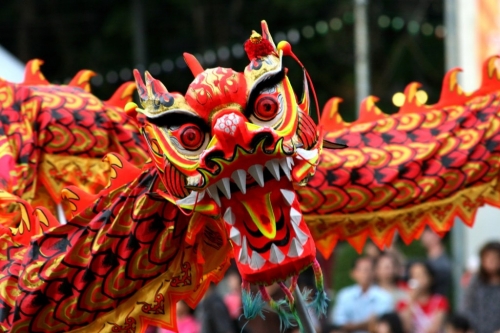
 Seen from these vantage points, I have a lot in common with immigrants coming to Germany. Like me, they’re looking for a better life. In contrast to me, however, they believe they can find that better life in Germany.
Seen from these vantage points, I have a lot in common with immigrants coming to Germany. Like me, they’re looking for a better life. In contrast to me, however, they believe they can find that better life in Germany.


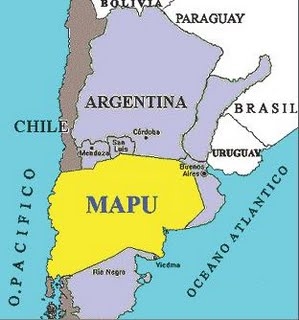 Les ennemis des Mapuches sont les politiques qui gèrent ces territoires et les congrégations multinationales qui exploitent pétrole, électricité, mines, tourisme. On citera Benetton, propriétaire de 900.000 ha dans les provinces de Rio Negro, Chubut et Santa Cruz ; Joe Lewis, ex-propriétaire de la chaîne Hard Rock ; Ted Turner, Georges Soros, Perez Companc, Amalita Lacroze de Fortabat, etc.
Les ennemis des Mapuches sont les politiques qui gèrent ces territoires et les congrégations multinationales qui exploitent pétrole, électricité, mines, tourisme. On citera Benetton, propriétaire de 900.000 ha dans les provinces de Rio Negro, Chubut et Santa Cruz ; Joe Lewis, ex-propriétaire de la chaîne Hard Rock ; Ted Turner, Georges Soros, Perez Companc, Amalita Lacroze de Fortabat, etc.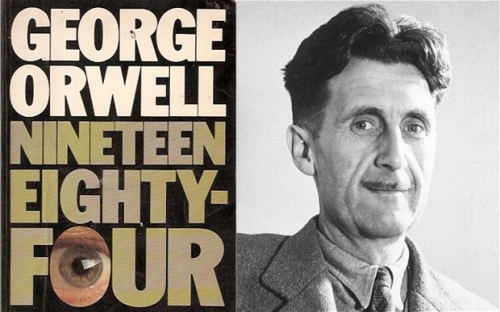
 En manipulant les archives, l’on manipule les consciences. Il suffit pour cela de « rectifier » le passé en l’alignant sur les nécessités politiques de l’heure. Si d’aventure il arrive que la mémoire individuelle contredise la mémoire collective ainsi façonnée, la contradiction doit être résolue au profit de la seconde par l’élimination de la première. D’où l’utilité de la « double pensée » pour assurer le triomphe de l’orthodoxie. Il n’y a plus ni réalité ni objectivité. Selon les termes même d’O’Brien, « la réalité n’est pas extérieure. La réalité existe dans l’esprit humain et nulle part ailleurs... Tout ce que le parti tient pour la vérité est la vérité ». Par cette perversion totale de l’histoire et de la conscience historique, on atteint le point extrême de la logique totalitaire.
En manipulant les archives, l’on manipule les consciences. Il suffit pour cela de « rectifier » le passé en l’alignant sur les nécessités politiques de l’heure. Si d’aventure il arrive que la mémoire individuelle contredise la mémoire collective ainsi façonnée, la contradiction doit être résolue au profit de la seconde par l’élimination de la première. D’où l’utilité de la « double pensée » pour assurer le triomphe de l’orthodoxie. Il n’y a plus ni réalité ni objectivité. Selon les termes même d’O’Brien, « la réalité n’est pas extérieure. La réalité existe dans l’esprit humain et nulle part ailleurs... Tout ce que le parti tient pour la vérité est la vérité ». Par cette perversion totale de l’histoire et de la conscience historique, on atteint le point extrême de la logique totalitaire. 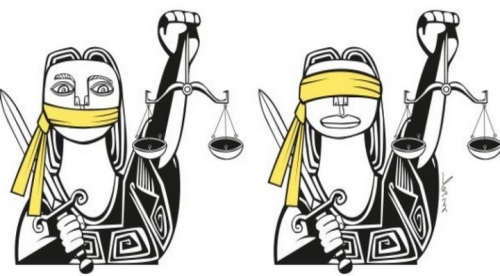
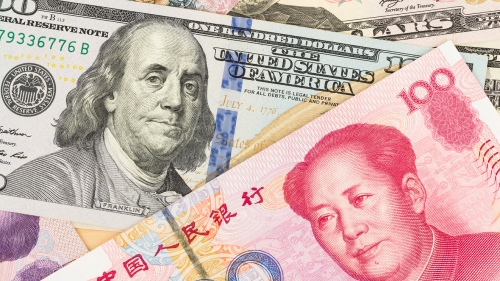


















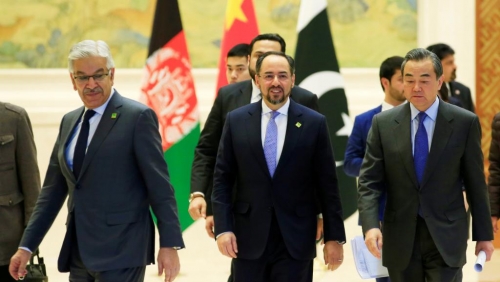

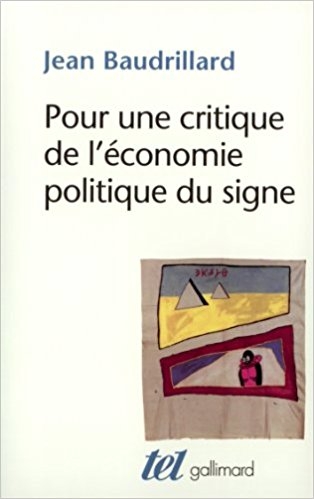 De l’économie politique des signes, critiquée par Baudrillard, nous sommes passés au nouvel horizon du capitalisme fondé sur l’économie de l’attention. Dans cette économie, l’homme n’est plus seulement pensé en termes de valeur d’échange mais aussi en termes de valeur d’attention. Simultanément, l’individu, dégagé de toute obligation collective d’ordre politique ou transcendental-religieux, « libéré » de ses liens symboliques ou personnels, enfin « privé » et autonome, se définit par une activité d’allocataire d’attentions disparates, furtives et fluides. L’attention, étant le plus souvent spoliée, détournée vers des offres et des besoins artificiels et préconçus dans cet univers le plus souvent virtuel, s’intègre dans un système de codification (les likes chez Facebook, on like pour être like-é) non dénué de toute forme ostensible evoquée par Thorstein Veblen à propos de la consommation ostentatoire.
De l’économie politique des signes, critiquée par Baudrillard, nous sommes passés au nouvel horizon du capitalisme fondé sur l’économie de l’attention. Dans cette économie, l’homme n’est plus seulement pensé en termes de valeur d’échange mais aussi en termes de valeur d’attention. Simultanément, l’individu, dégagé de toute obligation collective d’ordre politique ou transcendental-religieux, « libéré » de ses liens symboliques ou personnels, enfin « privé » et autonome, se définit par une activité d’allocataire d’attentions disparates, furtives et fluides. L’attention, étant le plus souvent spoliée, détournée vers des offres et des besoins artificiels et préconçus dans cet univers le plus souvent virtuel, s’intègre dans un système de codification (les likes chez Facebook, on like pour être like-é) non dénué de toute forme ostensible evoquée par Thorstein Veblen à propos de la consommation ostentatoire.
